Three key questions facing jury in the Bruce Lehrmann rape trial
Chief Justice Lucy McCallum has told a jury they must determine three key questions to deliver a verdict in the trial of Bruce Lehrmann.
Chief Justice Lucy McCallum has told a jury of eight women and four men they must determine three key questions to deliver a verdict in the trial of Bruce Lehrmann, who is accused of the alleged rape of Brittany Higgins at Parliament House in March 2019.
The jury of 12 men and women, which has now retired to consider a verdict, was also told that the verdict must be unanimous and that the onus of proof was on the prosecution.
Mr Lehrmann has pleaded not guilty to one count of sexual intercourse without consent.
Justice McCallum said the three key questions the jury must consider were: whether Lehrmann had sexual intercourse with Ms Higgins or not and, if so, whether it was consensual — and whether Mr Lehrmann was reckless over whether she consented to sex.
Key questions
If the jury found sex did occur beyond reasonable doubt, they also needed to consider whether it was consensual.
“Consent to a sexual act means informed agreement to the sexual act that is given freely and voluntarily and is communicated to the other person,” Justice McCallum told the court.
“A person does not consent if they are unconscious or asleep. They are incapable of consenting if they are incapacitated, or intoxicated.
“If you accept the intercourse did happen, you would have to accept that she did not consent.”
She also urged them not to invoke stereotypes to determine the way a person may behave.
Judge issues warning on stereotypes
“Be careful not to invoke stereotypes you might hold about events you have not experienced,” Justice McCallum said.
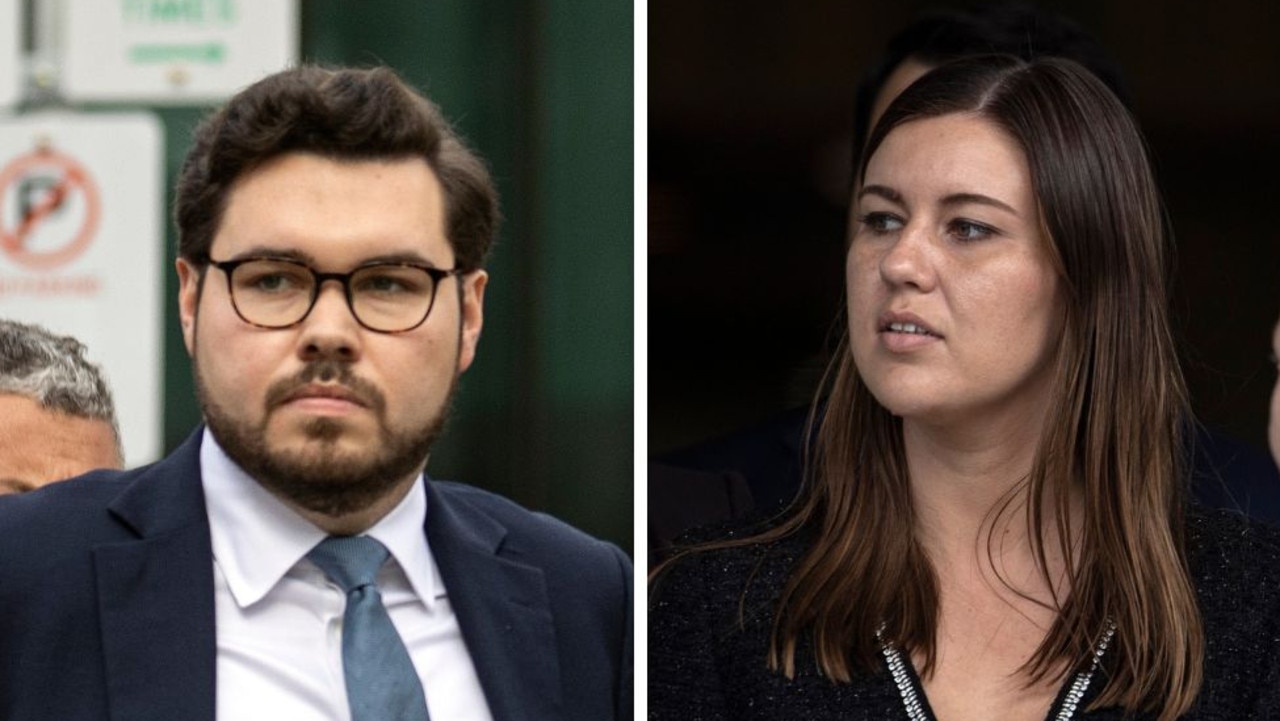
There was no blueprint, she said, for how a young woman might react to a sexual assault.
Where a single witness was the mainstay of the case, she said the jury needed to examine that evidence closely.
She also said it was not correct to say there were no witnesses.
“The person who spent the most time in the witness box is Brittany Higgins. She is a witness,’’ she said.
She also noted that Lehrmann is entitled to the presumption of innocence, that the onus of proof was on the prosecutor to prove the charge.
Justice McCallum also discussed the nature of memory and said many witnesses who were pressed to remember exact words unsurprisingly could not.
But the jury might consider that some events are more lasting.
Onus of proof
At no stage, she warned, did Lehrmann need to prove his innocence. The correct legal question, she said, was whether the prosecutor had proven the charge beyond reasonable doubt.
She said barristers were there to advocate and that the prosecutor and defence barrister had different styles.
“What they say about evidence is not evidence,’’ she said.
“It’s open to you to reject what is said and take a different approach. You and you alone are the judge of the issues.”
Jury ‘can’t use Lehrmann decision’ against him
Chief Justice McCallum has spoken about Lehrmann’s decision not to go into the witness box and provide evidence in the case against him.
The jury heard he is entitled to call or give evidence but “there is no obligation to do so” and the onus is still on the prosecution to prove his guilt beyond reasonable doubt.
“He is entitled to say nothing and make the prosecutor prove his guilt to that high standard,” the judge said.
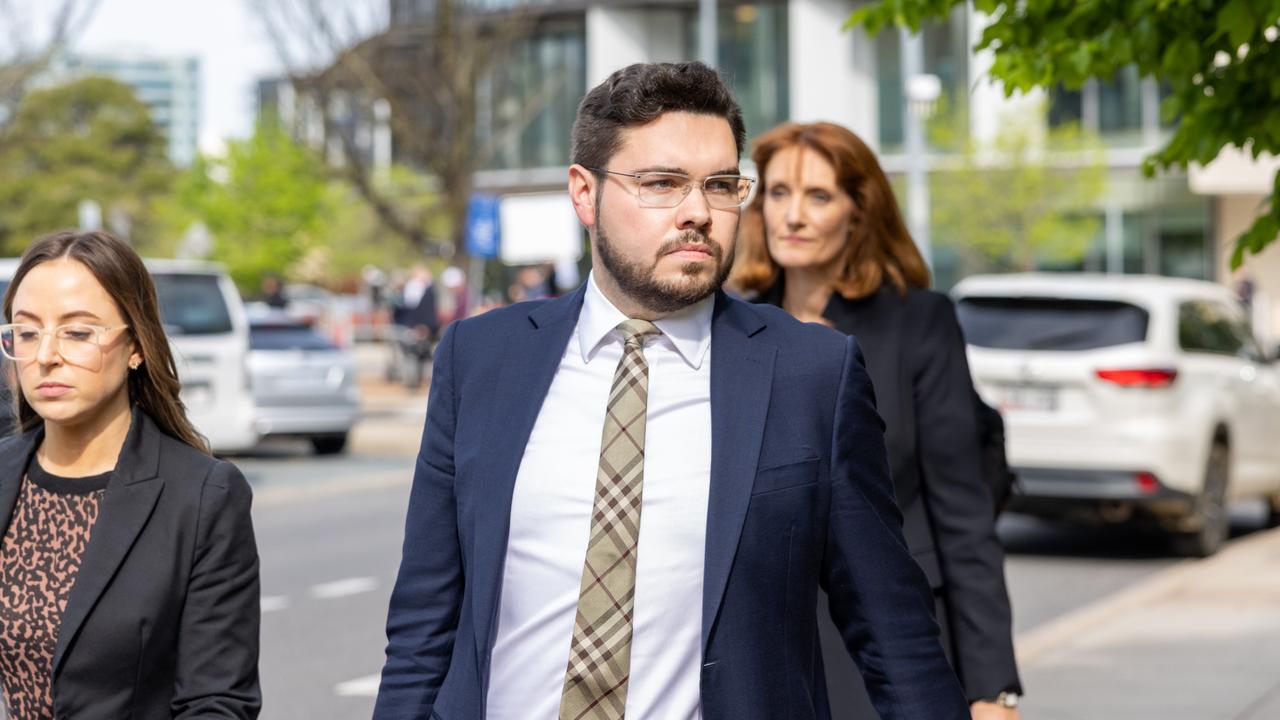
“The accused’s decision not to give evidence cannot be used against him in any way.”
Although he did not give evidence on the witness stand, the jury was shown a recorded interview he conducted with police in 2021.
“The accused did not have to participate in a recorded interview, he could have exercised his right to remain silent,” Chief Justice McCallum said.
She said the fact he agreed to be interviewed does not mean he has taken on any burden of proof and he is still entitled to the benefit of reasonable doubt.
Jury not answerable to public opinion
Chief Justice McCallum noted the case had attracted public attention but warned the jury “you are not answerable to public opinion, whichever way it might sway”.
She said the jury will have seen the number of journalists each day and said they were “practically hanging from the rafters”.
She said what goes on in the jury room stays in the jury room and it was an offence to disclose the deliberations of the jury.
Jury told not to let ‘sympathy or prejudice’ sway judgment
The jury has been told that “no one can tell you how to decide this case”, with Chief Justice McCallum saying it is up to them to come to a joint decision.
She pointed out that it is the job of both the defence and prosecution “to persuade” and what they say about the evidence is “not in itself evidence”.
The onus is not on the accused to prove his innocence, instead it is for the prosecutor to establish his guilt beyond reasonable doubt, the court heard.
This does not mean the prosecution has to prove the truth of every statement made by every witness beyond reasonable doubt, the judge said.
$325k question in Higgins case
Earlier, defence barrister Steve Whybrow delivered his closing address and asked the jury to consider the “$325,000 question” in the trial for the man accused of raping Ms Higgins.
Mr Whybrow made a reference to Ms Higgins’ book deal, which Lisa Wilkinson’s husband, Peter FitzSimons, helped her to secure.
He told the jury the big question they need to consider, “or in Ms Higgins’ case, the $325,000 question”, is whether they accept Lehrmann went into minister’s office and sexually assaulted her.
Mr Whybrow questioned how Lehrmann was meant to know that Ms Higgins was in there and hadn’t already left.
The jury were directed to Lehrmann’s police interview, in which he told the officers he didn’t feel like he needed to be responsible for Ms Higgins.
Referring to Ms Higgins going to the media with her allegations in 2021, Mr Whybrow noted once again that she now has a $325,000 book deal.
“This is a big story,” he said.
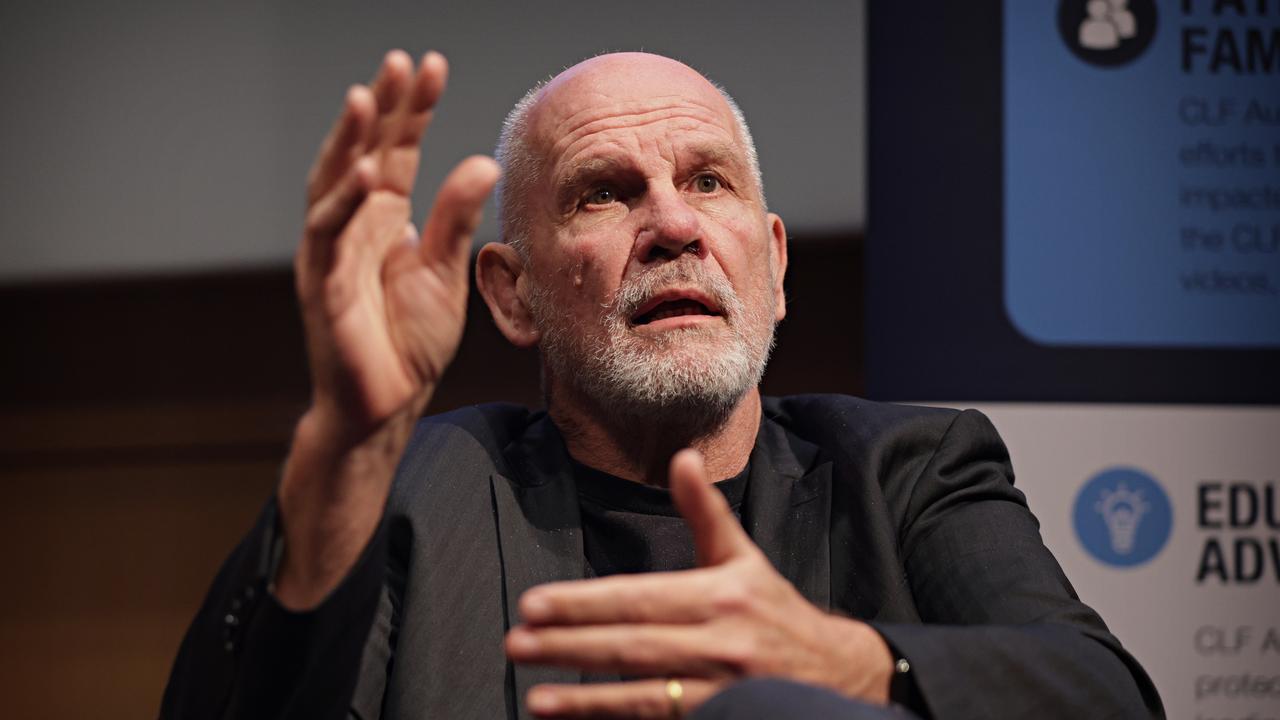
“I am not here to tell you or prove why she goes back to the police.
“There are 325,000 reasons, at least now, why this case is important from her perspective.”
Mr Whybrow asked the jury if they accepted what Ms Higgins says happened in 2019 “beyond reasonable doubt”.
He suggested that when the media request about the night in question came through in October 2019, Ms Higgins was “stressed”.
“She did then go to the doctor for anxiety,” he said, adding that she also made disclosures about her allegations to people in Senator Michaelia Cash’s office.
“At that time, potentially, in case this gets out of hand you might think,” he said, asking whether Ms Higgins was trying to have some “receipts” on her side if needed.
Mr FitzSimons spoke to Ms Higgins about the possibility of helping secure her a book deal in March 2021, with the former Liberal staffer receiving confirmation a publisher was interested on the 16th of that month.
This was after she had gone public with her allegations and followed her first recorded interview with police.
Brittany Higgins threw Reynolds’ staffer ‘to the wolves’
Mr Whybrow has previously told the jury that Fiona Brown, the former chief of staff of Linda Reynolds’ office, was a “very important” witness.
Dismissing the prosecution’s submissions that there were political forces at play in the case, he told the jury that Ms Brown broke down in tears in the witness box because Ms Higgins had “thrown her to the wolves”.
She wept after the defence barrister read a text exchange with Ms Higgins in which the former staffer thanked Ms Brown for her support.
Ms Higgins has previously told the court she felt pressured by Ms Brown and others into believing she had to make a choice between making a complaint and keeping her job.
But this was not the case, the defence barrister said.
Mr Whybrow told the jury that Ms Brown’s tears were a human reaction of someone “falsely accused of something she had not done”.
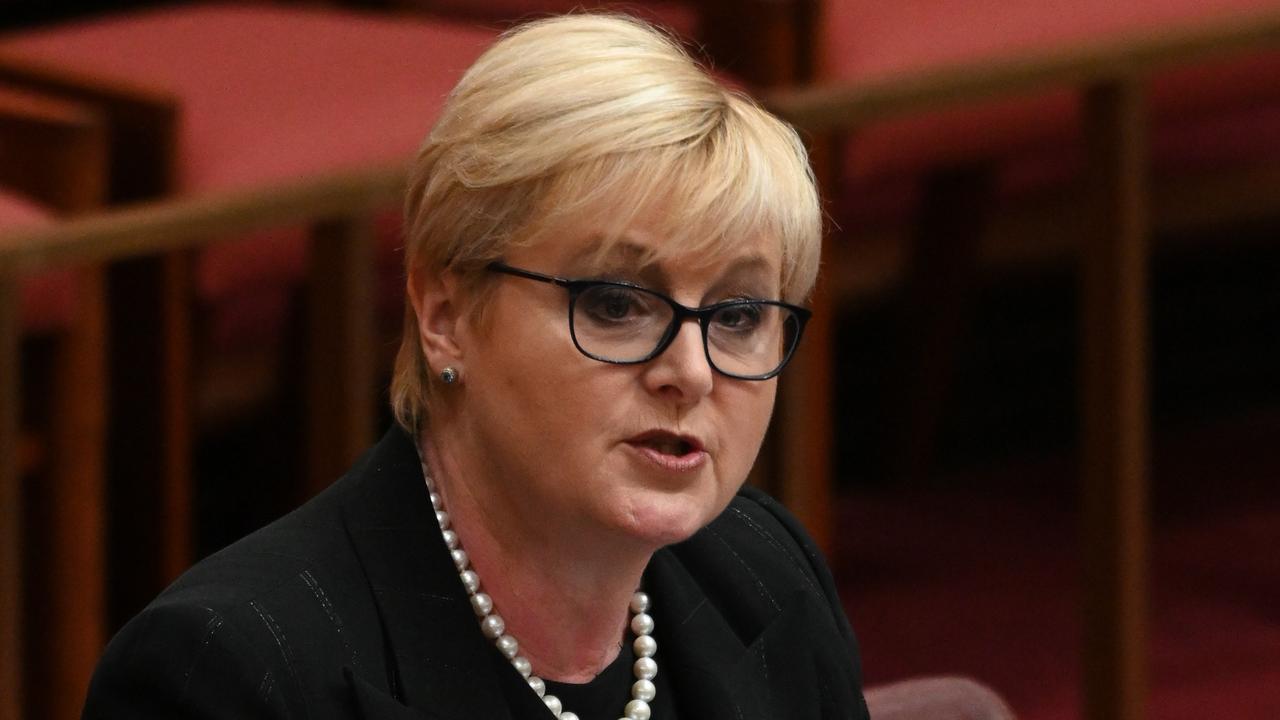
Rape accused’s ‘life came crashing down’
The court has heard that Lehrmann’s life “came crashing down out of the blue” over a night he had “never thought of again”.
In his police interview, Lehrmann spoke about finding out about the allegations through his boss and how he was “ready to go”, alluding to self-harm.
“I suggest that was a powerful and compelling and genuine statement consistent with what he told police at the start of his interview that this ‘did not happen’,” Mr Whybrow said.
No DNA evidence
Mr Whybrow reminded the jury that his client is entitled to the “presumption of innocence” until they are satisfied beyond reasonable doubt that he is guilty.
Mr Whybrow said there is no DNA evidence and no contemporaneous medical complaint, adding there were “contemporaneous lies” about medical appointments made.
Higgins accused of ‘reconstructing’ night of rape
Defence barrister Steve Whybrow has suggested Brittany Higgins “made up” the account of a bruise after her alleged sexual assault to make her account more believable.
In his closing arguments, Mr Whybrow said the bruise was “important evidence” and he also suggested that “con artists” can be convincing but stopped short of suggesting he was extending that term to Ms Higgins.
Instead, he suggested she may have “convinced herself” she was raped when that was not the case.
“We have these things called con artists because demeanour is a difficult thing to pick up on sometimes,” Mr Whybrow said.
He told the court it is possible to think someone is being genuine but later find out “they were conning you”.
He said he was not suggesting Ms Higgins’ demeanour or the way she acted in the witness box “was an act”, but said there was certainly “a difference between the way she presented herself” in the first and last part of her evidence.
Ms Higgins was absent from court for four days last week, returning on Friday to complete her cross-examination.
“When she came back she was a bit more combative and aggressive in responding,” Mr Whybrow said.
He suggested it was “reasonably possible” that the former Liberal staffer actually didn’t know what happened because she had “reconstructed events to the point where she now genuinely believes them to be true”.
“That doesn’t mean they are true,” Mr Whybrow told the court.
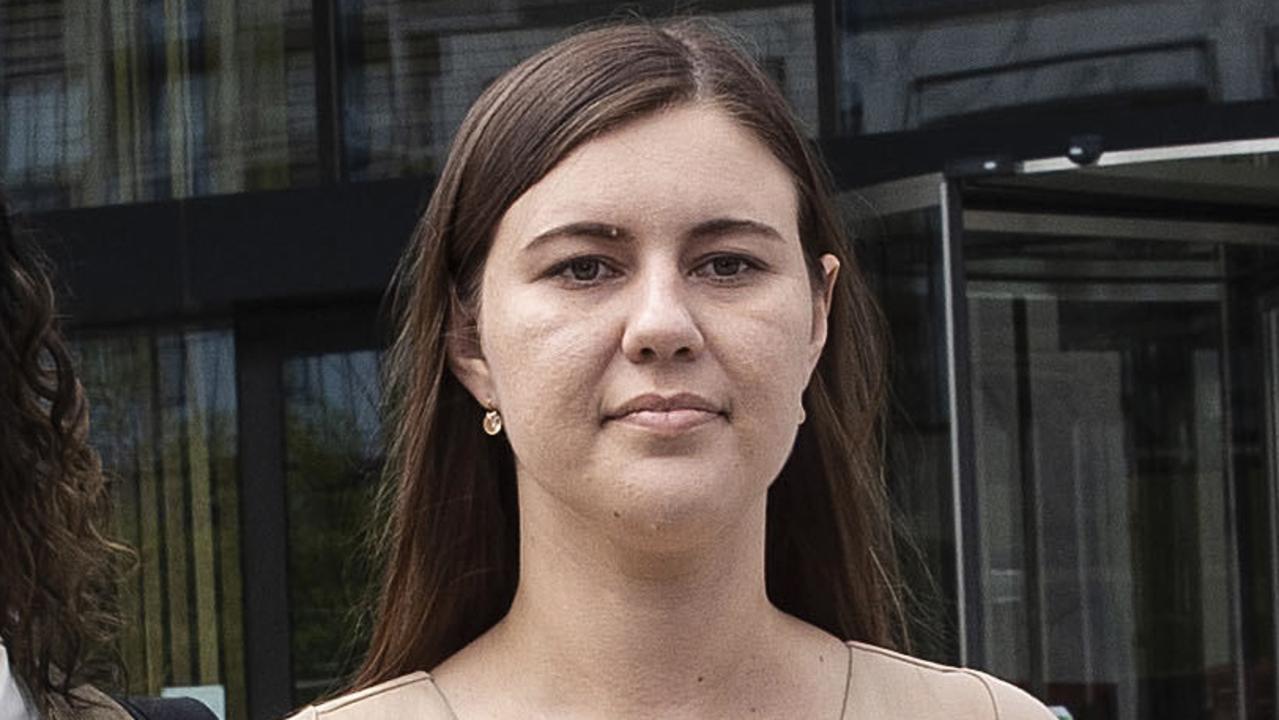
‘I misspoke’: Accused rapist’s lawyer backtracks
Earlier, Mr Whybrow told the court that he “misspoke” during his closing argument.
“I misspoke yesterday in a couple of ways,” Mr Whybrow told the court, drawing the jury’s attention to comments he made about whether the rape could have happened in the way Ms Higgins suggested.
The defence’s case is that Lehrmann did not enter the minister’s private office on the night of the alleged assault and did not see Ms Higgins again after they went their separate ways after entering the suite.
On Tuesday, Mr Whybrow suggested the jury could consider whether it was even possible for the assault to occur in the way Ms Higgins described.
In closing arguments, he told the court it was “not something he should have put” to them because he did not put that suggestion to Ms Higgins during the cross-examination.
Mr Whybrow also brought up a comment he made yesterday where he said Ms Higgins said this was a “job she would die for”.
What Ms Higgins actually said was a job that she cared about more than her own life, which Mr Whybrow said he conflated with it being a job she would die for.
Warning over ‘red herrings’
On Tuesday, Crown prosecutor Shane Drumgold warned the jury not to get “distracted by side issues or red herrings”.
He said the case against Lehrmann was not about political parties, workplace cultures or whether Parliament House responded to reports of a security breach appropriately.
“It is certainly not about the experiences of other women in Parliament. And it’s not about the MeToo movement,” he said.
“This case is about what happened on a couch in a room on Saturday the 23rd of March 2019.”
He said Ms Higgins was a credible witness and would have to be “quite the actor” if her claims were fabricated.



